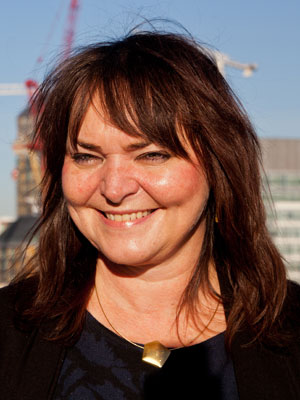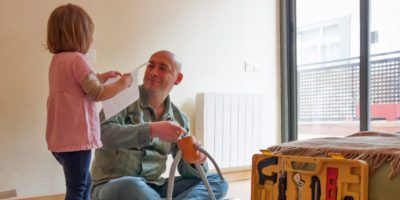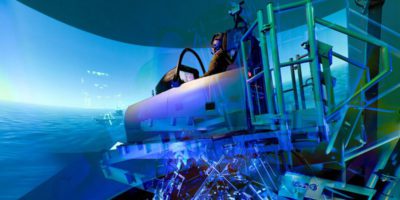Dana Skelley OBE, Director of Strategy and Operational Excellence at Skanska, is a Chartered Civil Engineer with an MBA and 30 years’ contribution to the highways and transportation sector inspiring people, stakeholders and partners through continuous improvement and change. Her role focuses on driving operational excellence to continuously improve performance across its infrastructure portfolio, whilst driving strong, tangible collaboration, both within and outside the company. Prior to joining Skanska, Dana held a number of senior positions at Transport for London including Chief Engineer and Head of Road Network Management, Director of Roads and Director of Asset Management.

“…One of the most important lessons I have learnt is be yourself, but be yourself very well…”
Dana, please can you tell us about your love of all things highways and transportation and where this came from?
My early passions were architecture and design – buildings, cathedrals and chairs I moved on to bridges and was keen to work with them inspired by their place making and calm, steady qualities. I soon realised that my passion was making a difference to the environment – making a difference that is for the benefit of everyone. As every journey starts and finishes on a road, the world of infrastructure seemed a perfect world to get involved with.
What route did you take to become qualified?
I did a civil engineering degree at Kingston Polytechnic and got my professional Chartership through working on the rehabilitation of heritage bridges along the Thames.
In the 1990s I grew more interested in the people and the business aspects of the engineering service and studied for an MBA. My dissertation focused on organisational culture – this stood me in good stead for the recent work I have been doing relating to leading collaborative working in the industry.
True collaboration between teams, suppliers and stakeholders relies on shared objectives and outcomes. Total system collaboration comes when all stakeholders, even those removed from the individual project, work together for the greater good.
What was the most challenging part of getting qualified?
Getting professionally qualified is by no means the end of the journey. I wanted to progress in terms of leadership and decided an MBA was part of my personal development programme. It was interesting to experience a totally different style of learning – my first degree was taught whereas the MBA was an action learning approach which helped me realise the importance of programmed knowledge coupled with questioning insights.
What’s important is to be flexible and adaptable to the changing world of transportation – the technology available to us now in managing traffic real time and communicating with our customers simply wasn’t there when I qualified.
What is it like to balance work and life when you’re in a senior role and how important is it to set a good example for your team in this area?

Work is an important part of my life – as long as I continue to see that I am making a difference to people I am motivated to continue with the work I do in the most effective, efficient and creative way. One of the most important lessons I have learnt is be yourself, but be yourself very well…
You’re a keen sponsor, mentor and career enabler of apprentices and graduates in your field – what is the most rewarding part of this?
People are at their happiest when they feel valued. Enabling people to learn and develop, gain confidence and enjoy their work is paramount for running a successful business.
There are many different ways for people to feel valued and understanding what individual’s drivers are is fascinating.
Why does Skanska believe diversity of thought is so important in its staff?
Our vision is to be a truly diverse and inclusive organisation – one that mirrors the societies in which we work. It’s important to society, important to customers and important to those who currently work for us, and to those we want to attract in the future.
Diversity opens a rich potential for new ways of thinking, helping us to build successful and winning teams. I mentioned the importance of total collaboration earlier – this can only be achieved through integrated diverse teams, both internal and external, giving us insight into every aspect of our end customer’s experience and helping to support our purpose to build for a better society.
Why is the work of the Women’s Engineering Society and other organisations so important to help break down barriers for women?
It’s not so much about being part of a club as showcasing excellence and achievement. We all learn from each other, but role models are important too. Seeing others succeed, and how, helps make equality real!
https://twitter.com/skanskaukplc
https://www.linkedin.com/company/skanska/
https://www.facebook.com/Skanska





